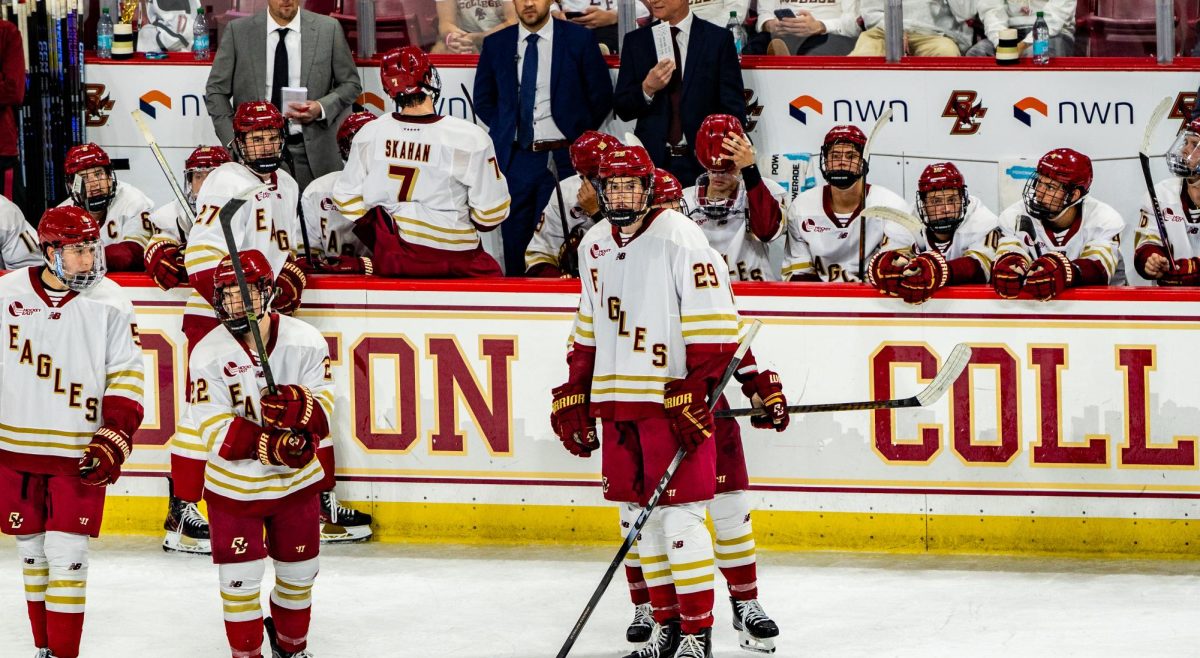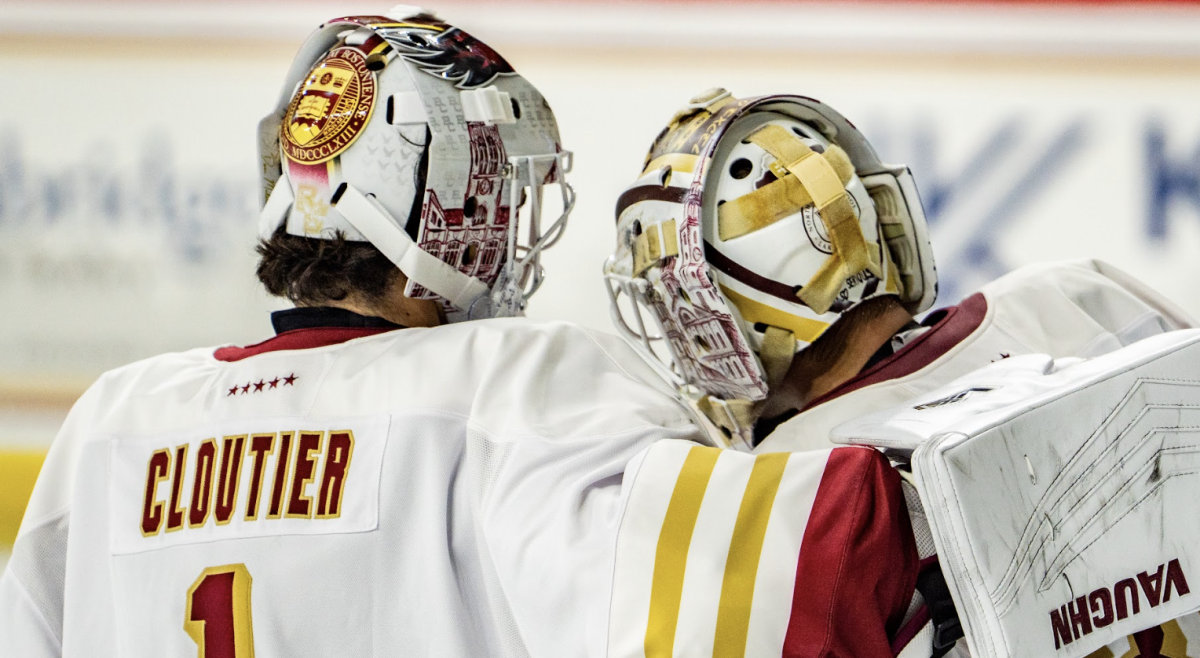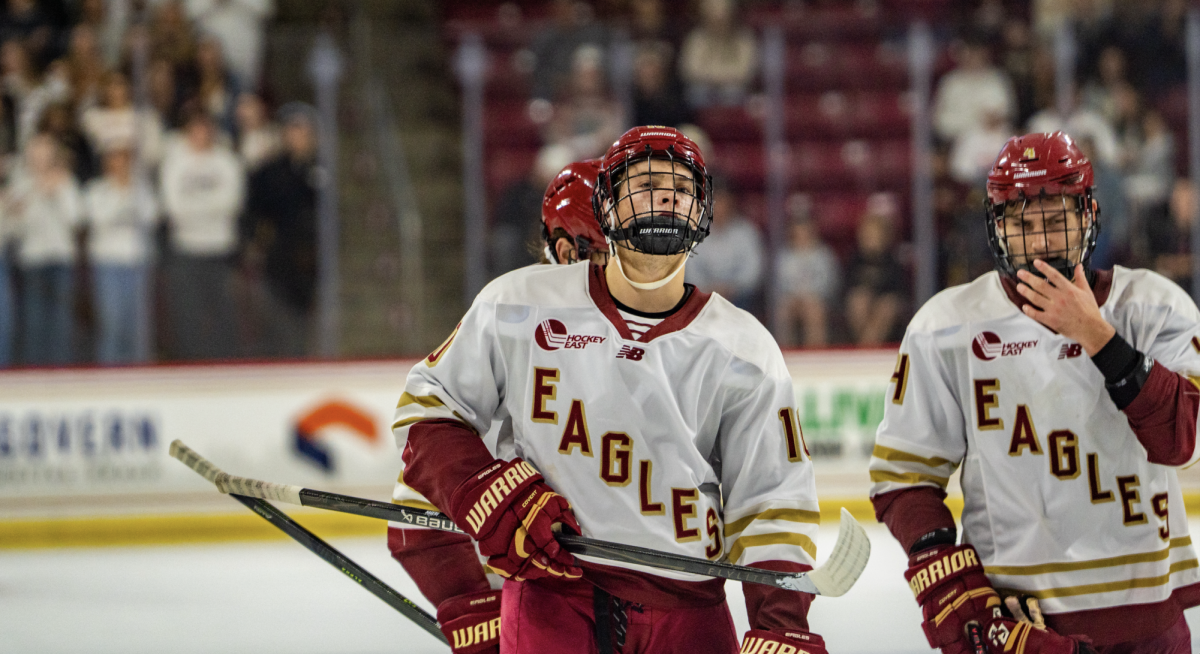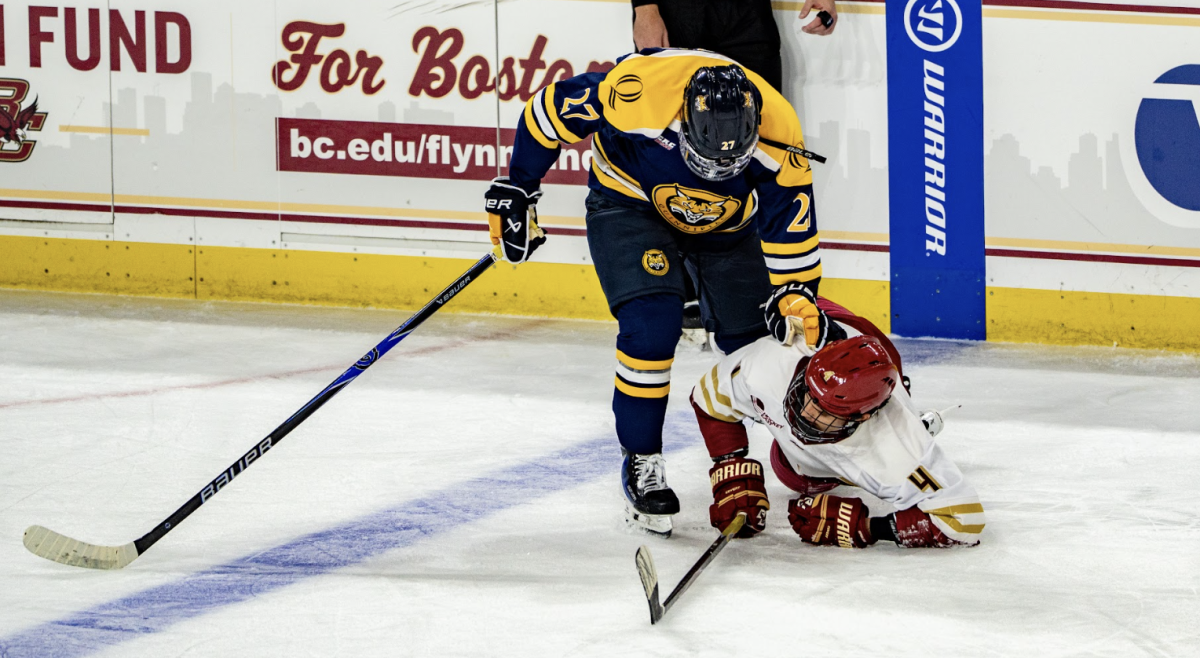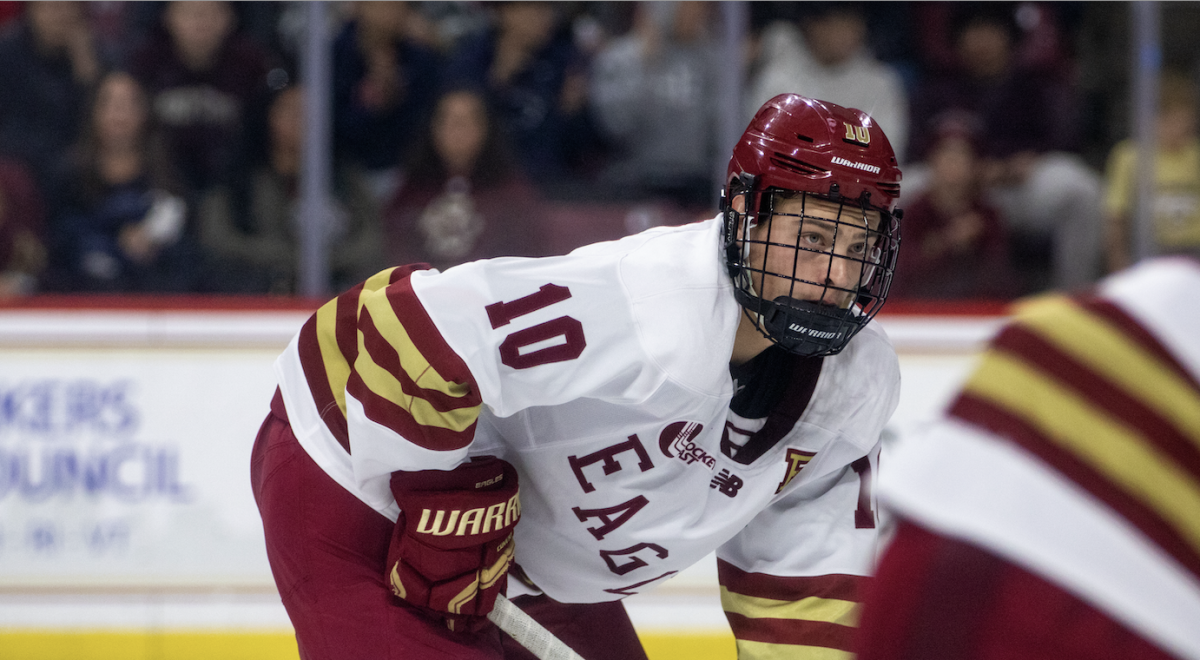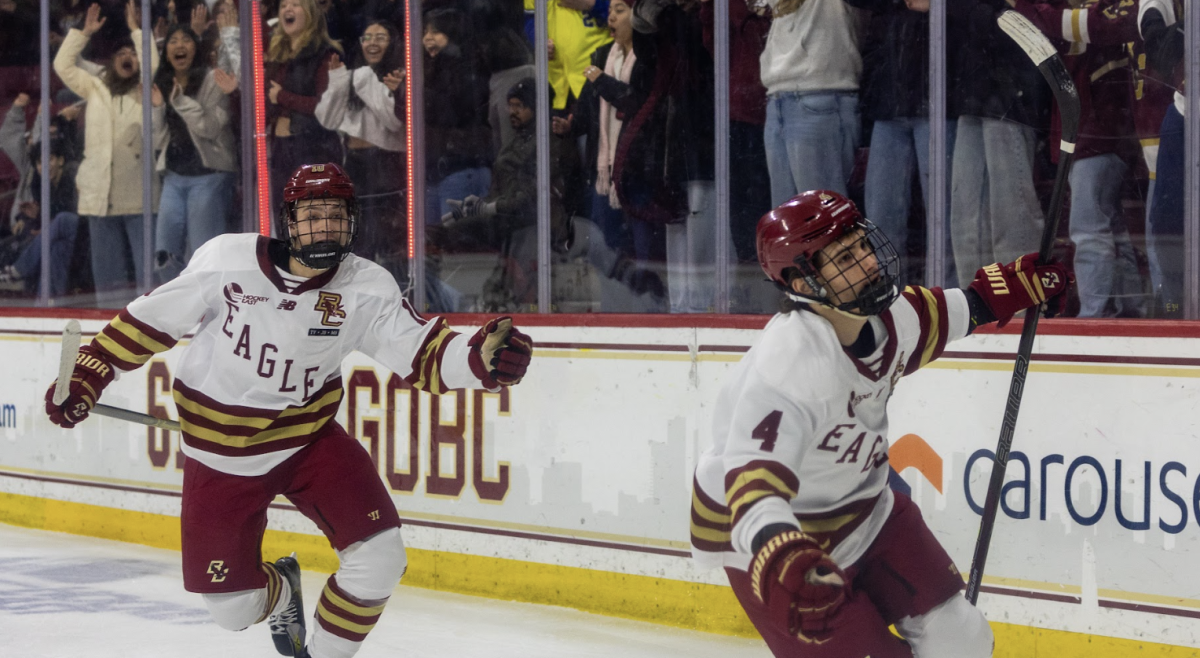Colin White’s Offense is Invaluable
Michael Sullivan | Sports Editor
Every year, I argue with my friends that a starting pitcher is the true National or American League Most Valuable Player.
For example, there was never a doubt in my mind that Clayton Kershaw was the most important player in the NL for the 2014 season. He had the highest wins above replacement (WAR), a stat that measures how many wins a player adds to a team compared to a below-average player, in the sport. Generally, that’s something that’d make you pretty valuable. But the argument people come back at me with is that pitchers only play 33 games a year if they pitch a full regular season (Kershaw, in 2014, only 27 starts) and should be limited to the Cy Young Award, a pitcher-specific honor.
Nay, I say to you, does it matter more how many games you play or how many times you actually encounter a live ball? A batter who doesn’t get hurt or has regular rest will have about 650 plate appearances in a single season—Giancarlo Stanton, the man who finished second in 2014, had 638. Yet Kershaw faced 749 batters that season (he typically averages about 900), meaning he had a direct impact in 100 more plays than Stanton. And Kershaw did it better than Stanton.
These stars, like Kershaw, don’t provide offense. They prevent it. And there’s no reason why that doesn’t make them “Most Valuable.”
But I don’t believe that logic applies as well to hockey.
I appreciate the talent that Thatcher Demko is. There is no doubt in my mind that Demko is the only logical choice for the third-annual Mike Richter Award, college hockey’s response to its lack of a Vezina Trophy. And he must be making a convincing case to the people, considering he currently has a healthily wide lead in fan voting for the Hobey Baker Award.
But I don’t know if I’d make the case if he’s the most valuable member of Boston College men’s hockey right now.
Don’t get me wrong, Demko has played fantastically. His statistics speak for themselves. But the Eagles didn’t do so poorly without him. Backup and first semester freshman Ian Milosz, a 6-foot-7 behemoth of a goaltender, was thrown into the fire against Providence, the defending national champs and currently the 10th-highest scoring offense in the country. In two games, Milosz gave up seven goals. That’s normally a lot, but against the Friars, it led to a win and tie for the Eagles.
So if Milosz can seamlessly replace Demko, it’s hard to say he’s the top option. So then who is?
How about Colin White?
On a team with a parade of offensive superstars, White sticks out more than the others. The Ottawa Senators prospect has notched a point in 16 of the 22 games that he has played, including nine multi-point games. He has 31 overall (14 goals, 17 assists), good for 11th in the country, one more than fellow Eagle Ryan Fitzgerald. But while Fitzgerald has scored 14 goals on 102 shots, White has done so on 80—only five players have more goals on fewer shots than White.
But White’s ability to wreak havoc and attack the net has proved an invaluable asset to the Eagles, one they lacked last season. He (and Fitzgerald) have already passed Alex Tuch’s team-leading 28 points from last year. White has constantly attacked the net with fervor throughout the season, keeping pressure on both opposing goaltenders and defenses. It has even led to two penalty shot attempts. (He missed them both, but it’s the thought that counts.)
He’s also a natural leader as well, something that most of these awards take very seriously—justifiably so or not. In his first year as a member of the U.S. U-18 National Team, White was elected as an alternate captain with Auston Matthews and Louie Belpedio. He has the flare of a freshman—you’ve all seen his electrifying dab in the World Juniors—but the poise of a senior. He rarely takes a penalty, with only 30 minutes total (14 of them in BC’s Nov. 8 game against Maine). Not every freshman stays out of the box as well as White (looking at you, Miles Wood, with your nation-leading 62 minutes).
Oh yeah, and what happened when White was at the World Juniors? BC’s offense became anemic. The Eagles’ two Winter Break games in Estero, Fla. against Ohio State and PC were disasters. BC fell 3-2 and 2-1, respectively, to finish fourth in the Florida College Hockey Classic. Since his return? BC has gotten a point in every game.
You want to talk about valuable? Talk about Colin White.
A Goalie Like Thatcher Demko is Irreplaceable
Michael Hoff | Heights Staff
There’s a cliche out there that hockey should be called “goalie.” There are worse cliches. In team sports, only quarterbacks in football impact winning the way goalies do in hockey. In baseball, pitchers pitch now and then, and even quarterbacks sit for more than half the game when factoring in special teams. Goalies, though, are always on call. A hockey team’s skaters can play like garbage, and as long as that team’s goalie is better than the opposition’s, he gives his team a chance to win.
It’s true in theory and in practice. Hockey-reference.com tracks all players in the NHL’s individual “point shares”—that is, each player’s estmated contribution to his team’s point total. The stat is analogous to WAR, or wins above replacement, in baseball or basketball. By this metric, eight out of the 10 most valuable players in the NHL last season were goalies. Last year wasn’t an anomaly, either. In the 2011-12 season, seven of the 10 most valuable players were goalies. In 2012-13, the entire top eight most valuable players were goalies. In 2013-14, eight of 10 again. This season has been the aberration—just five of the top 10 players are goalies, but those five are all in the top seven, and last season’s Hart Trophy winner as the NHL’s MVP, Montreal netminder Carey Price, has been injured for most of the season.
If this horse isn’t dead enough for you, War-on-ice.com has its own total player contribution metric called goals above replacement, or GAR. The website’s database goes back to 2005, and of the top 20 GAR seasons in that time frame, 12 of those seasons have come from goalies.
There are no equivalent statistics in college hockey, but the differences between the college and pro game only enhance the importance of a top goalie. There is more variance in player quality across college hockey than in the NHL, and thus that variance matters most at the sport’s most important position. Additionally, players in college hockey are worse, younger, and less-practiced than professionals, leading to more defensive breakdowns and odd man rushes for offenses—crises that goalies must deal with.
To argue that any skater, no matter how dominant in his time on the ice, should be considered a better candidate than a premium goalie for the award that goes to the top player in college hockey is drawing dead. Qualitatively and quantitatively, Thatcher Demko has been a premium goalie this season. The classic butterfly goalie at 6 foot 4, 195 pounds, Demko is rarely caught out of position, but after undergoing hip surgery last offseason, he is flexible and quick enough to make flashy, lunging saves when need be. His presence dictates that BC has an advantage on just about every shift, no matter the matchup between skaters.
“I’ve been Thatcher’s teammate for four years [between BC and the U.S. Development Program] and I’ve never seen him as plugged-in as he is now,” Demko’s classmate and BC defenseman Steve Santini said after the San Diego, Calif., native put on another elite performance against Maine earlier this season. “Confident, mature, at times he makes it look easy, and for any team to see that, I think it gives us confidence and helps us win games.”
At .936, Demko’s save percentage is just .007 back of the nationwide leader in that statistic, Chris Neil of Bowling Green. Demko has also played nearly 60 minutes, or a full game, more than Neil, as Boston College’s backup goalie situation has been in flux for much of the season, and thus faced 48 more shots than Neil. BC is sixth in the country in total goals against, yet is 18th in total shots allowed. Demko represents that difference.
There is nothing that drives a team’s success in hockey like a high-level goaltender. Demko has been that this season. Out of all of BC’s top performers this year, Demko deserves foremost consideration for the Hobey Baker.
Featured Image by Kelsey McGee / Heights Editor








